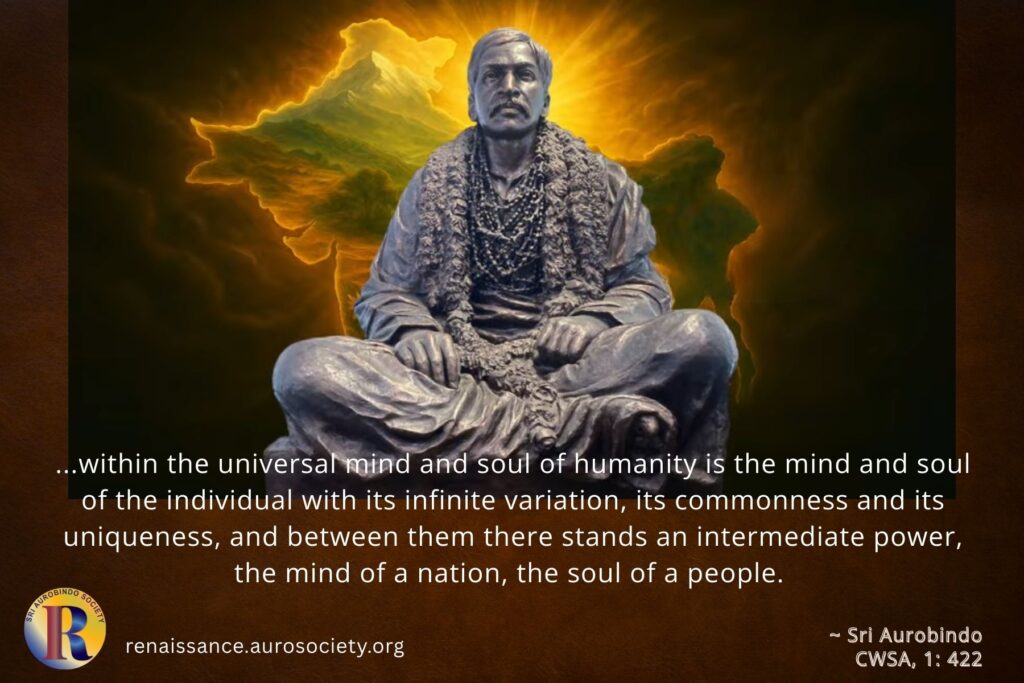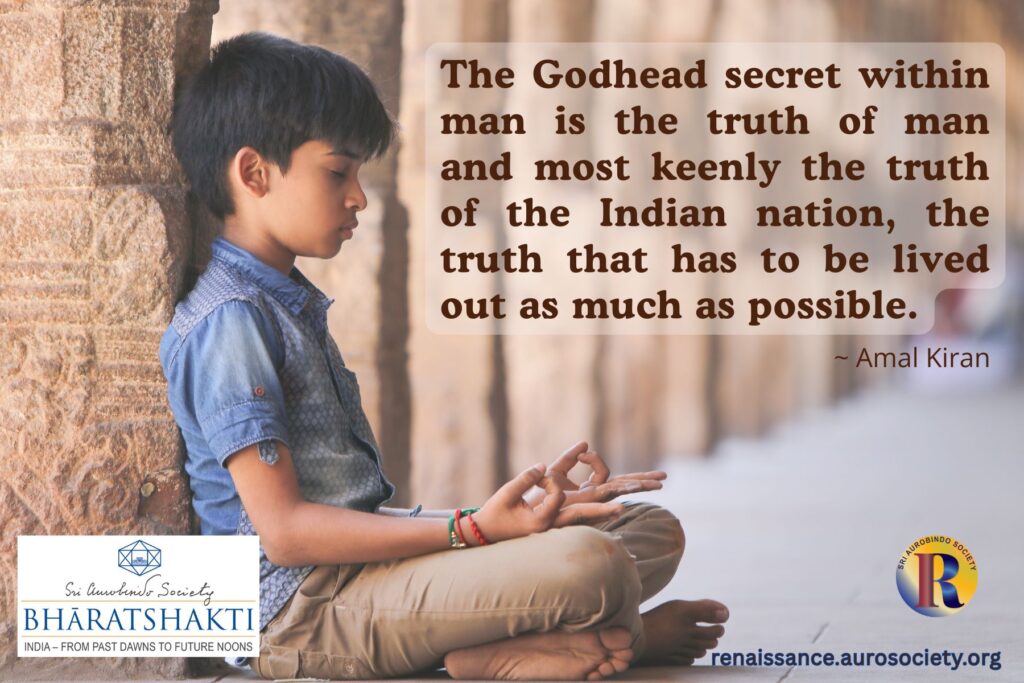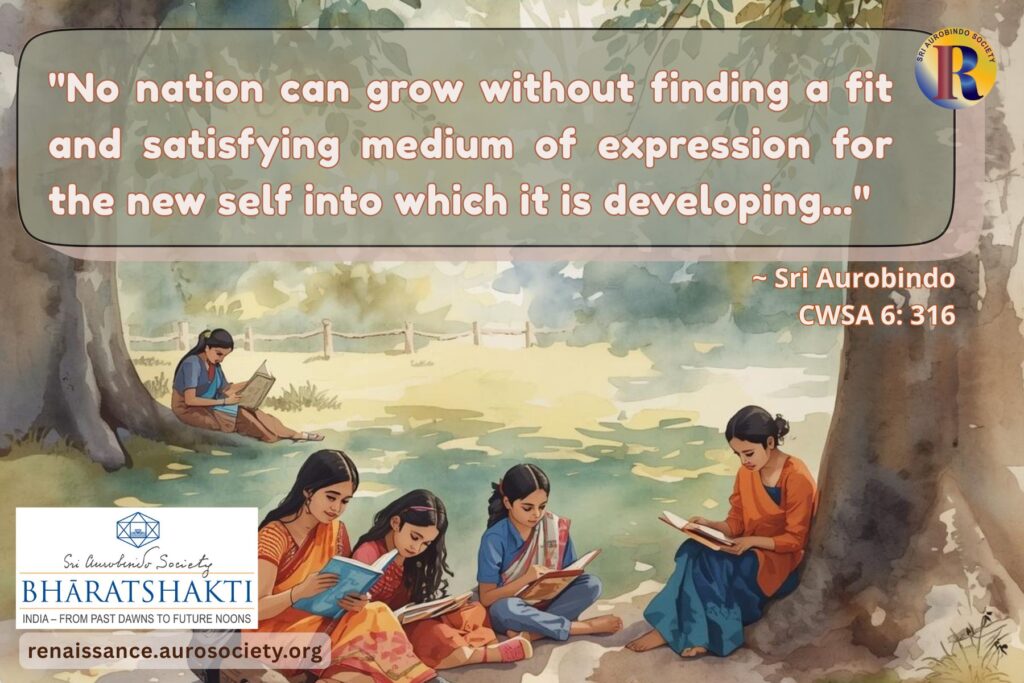Continued from PART 1

Dharma or Secularism
Religion can become a divisive or exclusive force in a society. But dharma by its very nature is a uniting, inclusive or rather harmonising force. In the words of Badrinath, while religion and politics must necessarily be separated for a sane world, “every shade of political thought and practice that is sane must necessarily have its basis in dharma.” (p. 43) He further explains that this confusion has caused another major misunderstanding in the contemporary Indian context – that of secularism.
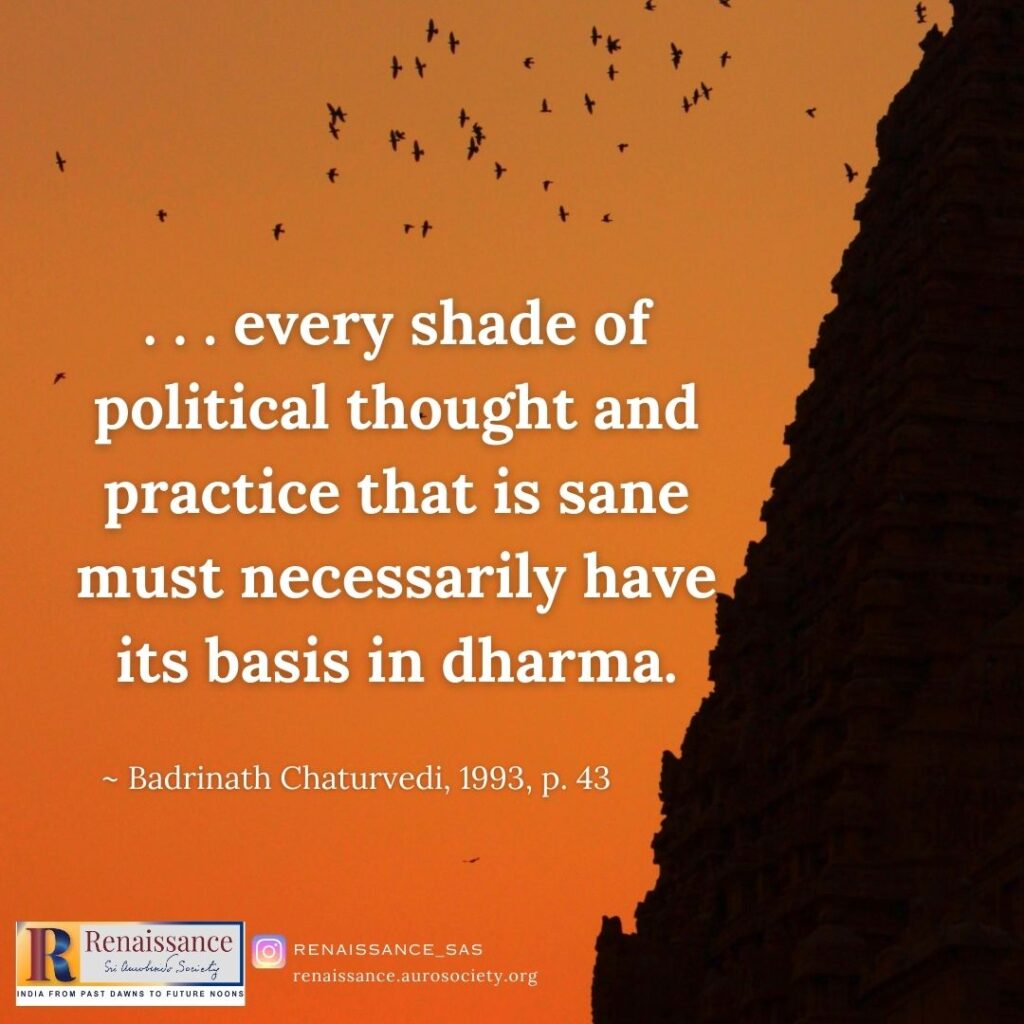
Badrianth takes a brief look at European history to describe the origin of secularism.
Post-enlightenment Europe had a radically altered perception of itself. It naturally led her to change her perceptions of other civilisations as well. The religious-secular controversy had aroused such passions that for a view to be secular, it had to be fiercely anti-religion. A secular view of life, turned quickly into an ism as opposed to Christianity. And soon it became a rigid ideology. As a result, every human striving that was not of the material world alone was resolutely eliminated from a secularist view of life.
Parallel to this another movement was happening in Europe. By the eighteenth century, individualism – the other highly prized Western value – had undergone a degeneration of sorts. From a passionate and ennobling concern for the inviolable worth of the individual it was now reduced to a possessive and grasping individualism. The secularist view of life when combined with this form of individualism resulted in a secular law. This law became the mechanism to regulate one’s conduct toward the other instead of the earlier Christian code. Thus it was no longer one’s ethical or moral responsibility for the other but rather legal accountability which guided collective life.
Badrinath continues:
This was simply not the case with Dharmic thought. Because the Indian mind did not think in terms of contesting polarities of the either/or kind, it would be yet another misunderstanding if the statement that dharma is profoundly secular is taken to mean that it is for that reason anti-religion, or that it has concern with other human beings in the form of legal accountability alone.
The secular nature of dharma lies in the fact that all Indian explanations of man are evidently located in man himself, in the very structure of his being. It is that which binds one human being with another. For the ethical foundations, and the limits of one human being’s conduct towards another, were already inherent in man’s being, in the force of dharma.
~ Badrinath, 1993, p. 41
***
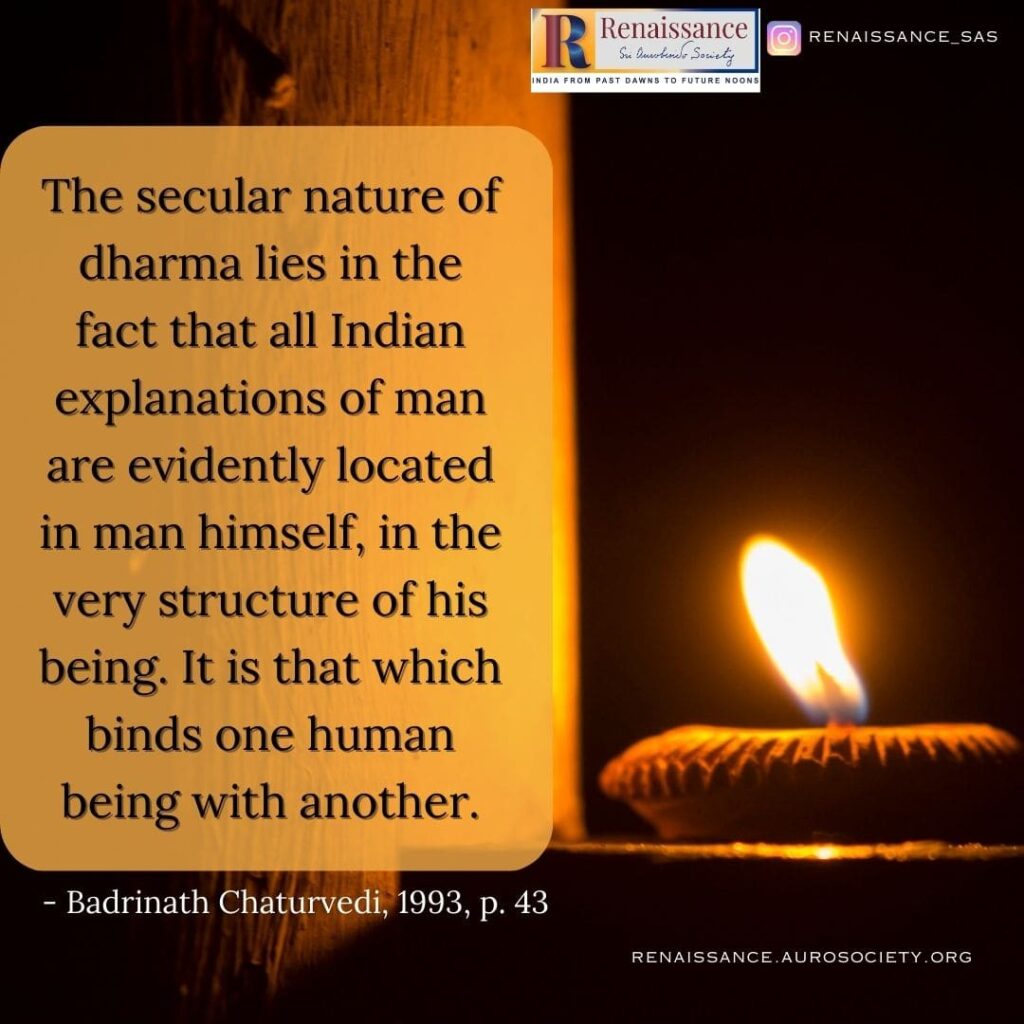
Badrinath is unapologetic when he adds that over its long period of history, Indian society, like any other society, has seen plenty of instances when life fell too far off the great ideal of dharma. In such times, humanity witnessed countless examples of cruelty, violence and loss of human worth and dignity. But the point to be emphasised here is that “that was always considered adharma, disorder, a gross violation of one’s deepest being. And the corrective appeal was always to dharma.” (p. 41)
But our analysis is concerned with a different question. What happens when a word or concept such as ‘religion’ or ‘secularism,’ each of which has a unique history behind them, is thoughtlessly applied to an entirely different civilization with its own trajectory of thought and experience? Badrinath replies that when one history is wrongly grafted on another, it can lead only to wrong perceptions. This eventually leads to disorder in the minds of men. All social disorders, he adds, originate primarily in the minds of men.
He writes further:
Just as the word dharma is untranslatable, and the word ‘religion’ conveys no substantial part of its meaning, the word ‘religion’ is similarly untranslatable into any of the Indian languages, for the concept of ‘religion’ is altogether absent from Dharmic language. As a consequence, ‘religion’ is translated invariably as dharma.
This leads to a total misunderstanding and to wrong formulations. For example, derived from the notion that secularism can mean, in the field of public policy, neutrality to all religions and not necessarily anti-religion, it is translated officially in Hindi as dharmanirapekshata, which perverts, the meaning of dharma. If dharma is the foundation upon which all life is based, then nothing can be neutral or indifferent to the very thing in which it is grounded.
~ 1993, pp. 41-42
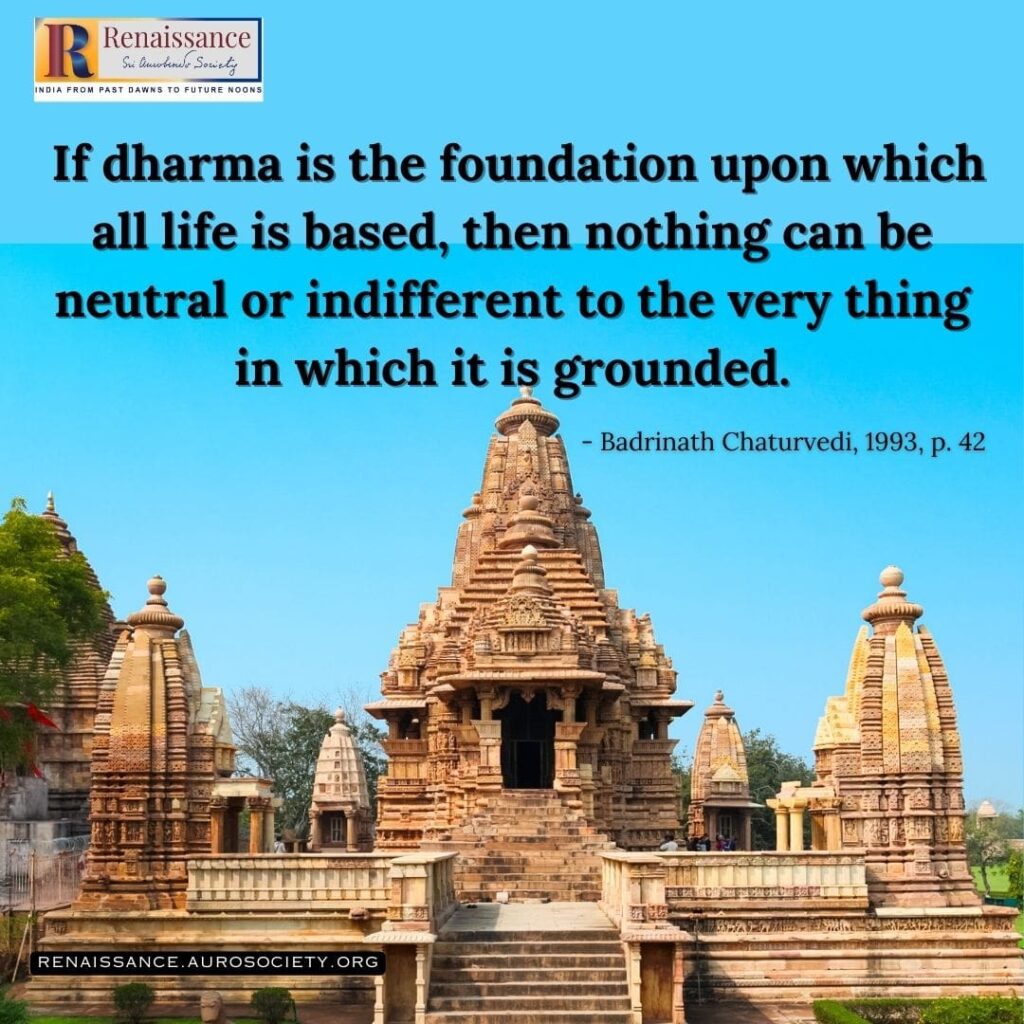
Indians today need to wake up to the true meaning of dharma as a basis for Indian national life. But before that, we must wake up to the Indian conception of life as such.
Indian National Life
The modern Indian social-political mindset, for the most part, is occupied with a secular conception of life. This conception emphasizes materialistic, utilitarian, mechanistic and rational view of life and universe. Since independence, the modern nation-state of India has also been organised around the same view of life. This is a view which divides the secular and the sacred into two mutually exclusive realms.
But a deeper Indian conception of life is more integral. It is neither about a purely materialistic view of existence, nor is it about a life-denying spirituality. It is actually a meaningful synthesis of both matter and spirit. The emphasis is not only on the spirit but also on the forms in which the spirit expresses itself.
Indian spirituality, at its core, is life-affirming.
Since times immemorial, Indian quest for the Infinite has been the basis for all seeking in all human pursuits such as art, literature, philosophy, music, mathematics, science, social-political organisation, etc. The ideal of dharma as the true basis for a progressive and gradual growth of the individual and society has been the organising principle for individual and collective life.
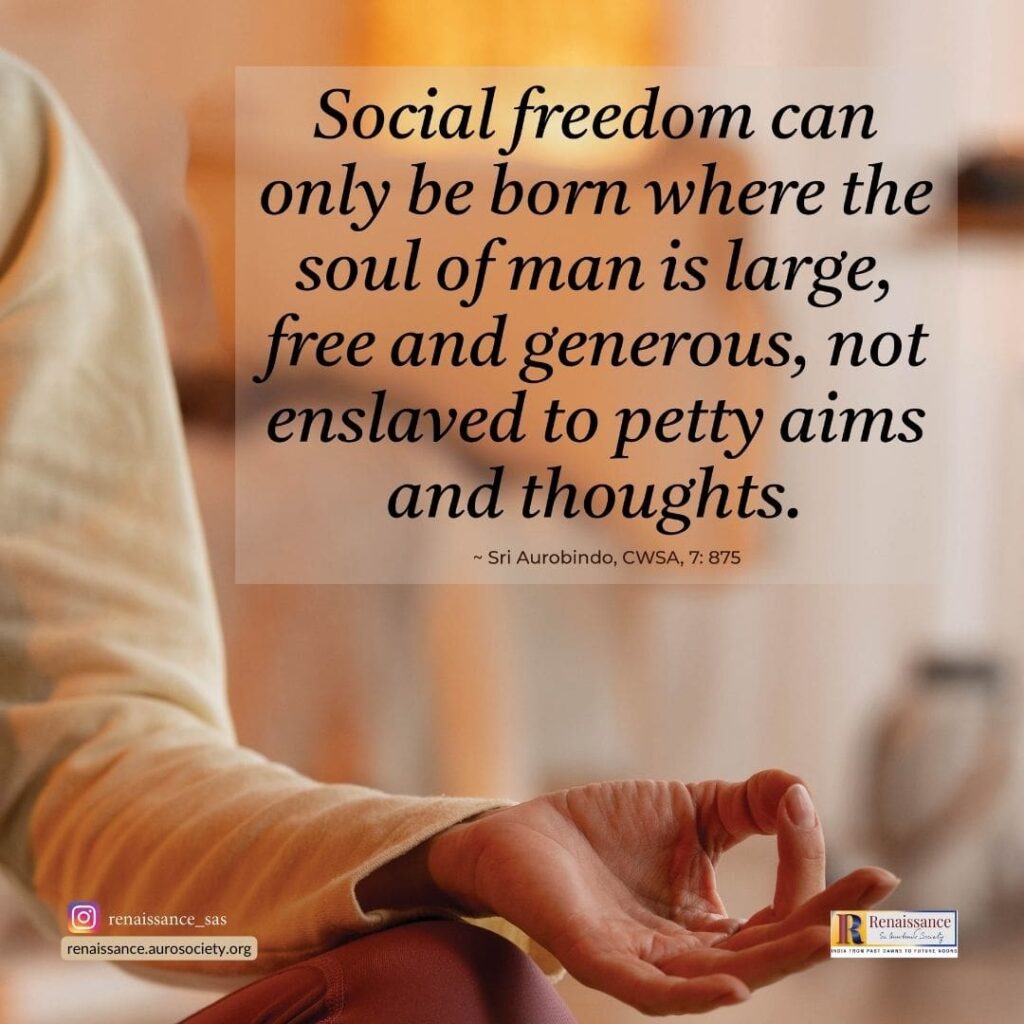
A study of ancient Indian polity suggests the same. Dharma was indeed the real and greater sovereign than the king who was the upholder of dharma. The ideal given for the king was to ensure the proper observance of the dharma by the people. This would help prevent crimes, serious disorders and breaches of the peace. He himself was bound to set an example. He was expected to lead his personal life as per the dharma. In his regal authority and office as well, he was expected to act according to the dharma.
Dharma as an overarching, integrating and organising principle for rethinking collective life has deep implications. It will eventually compel a rethinking of the nature of political, legal and governance structures and systems towards which Indians must aspire. And it will require the Indian nation-state to re-examine its role in shaping the national life through its institutions and structures. It will also lead to a refiguring of the priorities and developmental agenda set by the state machinery.
Don’t miss:
Sri Aurobindo on The Indian Nation and Unity in Diversity
For a long time Indian state has been walking around a somewhat artificially constructed dichotomy of secular/sacred, most of the time to the detriment of a cohesive social fabric. The deep divisions and unrest that were created as a result of ‘secularist’ policies and which were somehow hiding under the rug for the last 75 years or so are now out in the open for all to see. A narrow religion-based polity is not the right alternative either. The only correct alternative is a dharmic social and political organisation, grounded in Indian spiritual view of life. Then alone will India be marching toward its true role and purpose.
Dharmic civilisation had clearly seen the method of either/or as too narrow a logical framework to account for the manysidedness of life and its diversity. It saw the individual life as composed of different levels, finding different expressions at different stages of life.
Reason was not opposed to faith, man was not against nature, the individual was not set against society, nor against himself. That produced in India a capacity of seeing human life with many eyes and speaking about it with many tongues.
~ Badrinath, 1993, p. 26
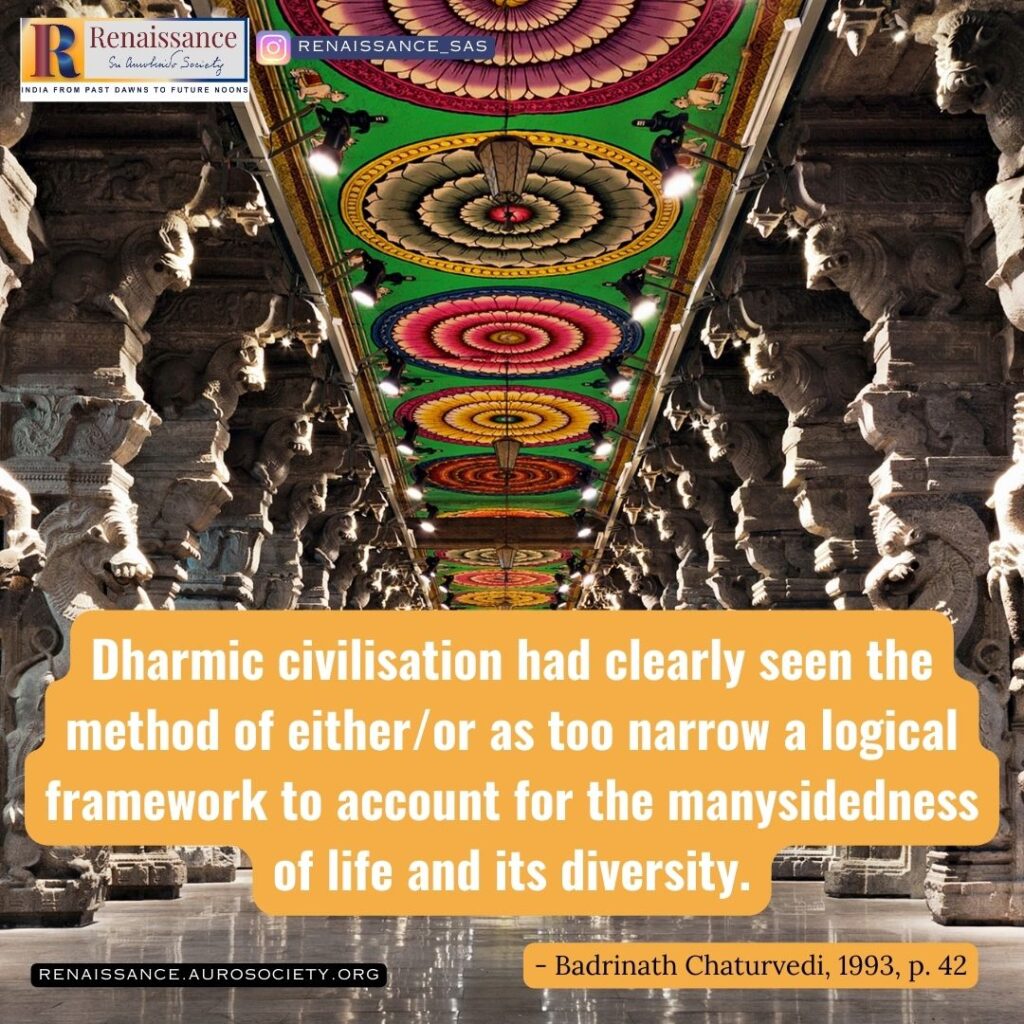
Also read in this issue:
The Right Path for India: Secularism or Spirituality?
In a message given to Andhra University in 1948, Sri Aurobindo wrote that India’s national destiny and her value to the world will be determined by the choice she makes.
The choice is between these two alternatives. One, India becomes like one of the existing nations of the world. It evolves an opulent industry and commerce, and has a powerful organization of political and social life. Wielding an immensely strong military India plays power-politics with a high degree of success, and guards and extends her gains and her interests. It may even come to dominate even a large part of the world. But Sri Aurobindo cautions that in doing all this, it will forfeit its Swadharma, and lose its soul. (CWSA, Vol. 36, pp. 503-504).
The other alternative is that India wakes up to her true nation-soul, her mission for humanity. And staying true to her heritage, she figures out a way that while working toward her own advancement she also lives for God and the world as “a helper and leader of the whole human race.” (CWSA, Vol. 36, p. 475)
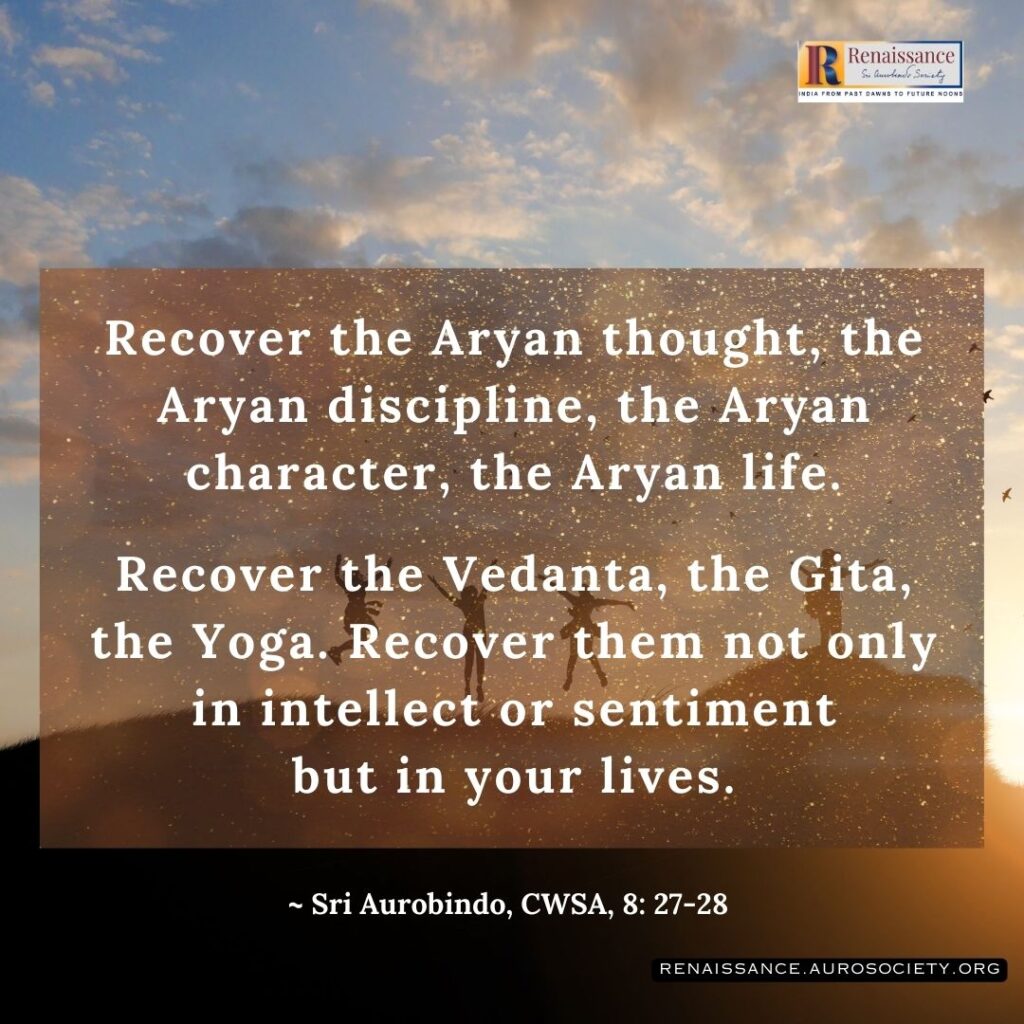
From Nation to World
A deeper appreciation of the inner significance and truth of the Indian view of nation also helps us recognise that becoming a nation-state in the modern sense may be an essential step in India’s ongoing march to renew the truths of her ancient civilisation. In a remarkable passage, Sri Aurobindo compels us to explore the difficult question whether the present-day politics can ever raise itself to the level of spiritually guided work for the nation. He reminds us of the real work that India is destined to do, the real mission for which India is rising. And he also outlines the path that India may go through in her struggle to find her true svabhāva and svadharma.
Spirituality is India’s only politics, the fulfilment of the Sanatana Dharma its only Swaraj. I have no doubt we shall have to go through our Parliamentary period in order to get rid of the notion of Western democracy by seeing in practice how helpless it is to make nations blessed.
India is passing really through the first stages of a sort of national Yoga. It was mastered in the inception by the inrush of divine force which came in 1905 and aroused it from its state of complete tamasic ajñanam [ignorance].
But, as happens also with individuals, all that was evil, all the wrong samskaras and wrong emotions and mental and moral habits rose with it and misused the divine force… It is only when this foolishness is done with that truth will have a chance, the sattwic mind in India emerge and a really strong spiritual movement begin as a prelude to India’s regeneration.
~ CWSA, Vol. 36, pp. 170-171

***
While we go through what Sri Aurobindo refers to as “foolishness”, we must hold on firmly to the truth of our national spirit. And spirit by its nature manifests itself in innumerable forms. There is an inner psychological unity that binds us as a nation despite the outer diversity of identities and appearances. This awareness will also help prevent the modern Indian nation-state from becoming a dominating, imposing monolith that might suffocate or brutally eradicate the rich diversity that exists in various nooks and corners of India.
The nation-unit is not formed and does not exist merely for the sake of existing; its purpose is to provide a larger mould of human aggregation in which the race, and not only classes and individuals, may move towards its full human development.
~ CWSA, Vol. 25, p. 382
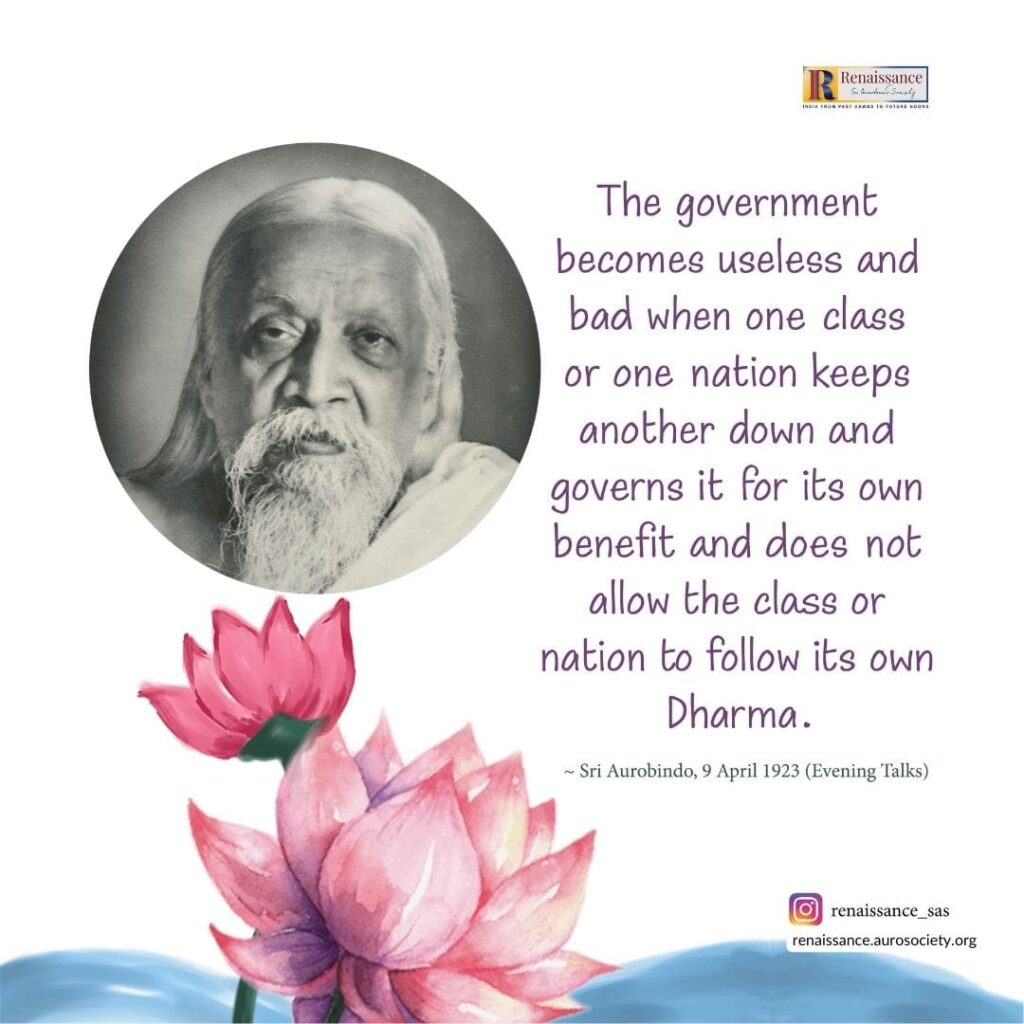
Read:
The Indian Nation and Unity in Diversity
While the Western idea of nation-state may have been imposed on India due to historical circumstances, seers like Sri Aurobindo remind us of the psychological rather than the physical principle as the foundation of nationality. Nationhood, according to him, refers primarily to the notion of psychological unity which, in turn, might be heightened by common collective memories of ancient traditions, past heroes and sufferings, by common geographical habitation and by common interests and values.
And he speaks of nationalism as a means to realize the essential Divine Unity in a nation:
“Nationalism is simply the passionate aspiration for the realisation of that Divine Unity in the nation, a unity in which all the component individuals, however various and apparently unequal their functions as political, social or economic factors, are yet really and fundamentally one and equal.
~ CWSA, Vol. 7, p. 679
It is only a true appreciation of who we are as a nation, and the deep love for our nation which will eventually help us really understand why the ideas of nation and nationalism are not in any contradiction with being concerned about the larger world beyond the nation. In The Ideal of Human Unity, Sri Aurobindo makes it very clear: “At the present stage of human progress the nation is the living collective unit of humanity” (CWSA, Vol. 25, p. 304). He explains that the unity of nations is possible only when each nation has first realised its intrinsic and essential unity.
Only from true nationalism we can move to true internationalism.
The truth of nation as a real living collective unity cannot be denied just as the eternal truth of ONE humanity cannot be denied. But it is also true that only free and united nations can work towards a united world. This is nature’s way. Beyond nation is the humanity, Sri Aurobindo reminds us.
In India we do not recognise the nation as the highest synthesis to which we can rise. There is a higher synthesis, humanity; beyond that there is a still higher synthesis, this living, suffering, aspiring world of creatures, the synthesis of Buddhism; there is a highest of all, the synthesis of God, and that is the Hindu synthesis, the synthesis of Vedanta.
~ CWSA, Vol. 8, p. 84
Indian thought has never considered nationalism as the final spiritual shelter, but it has always said that before human beings are evolved to the level of seeing God in humanity, nation remains the last real collective unity. Sadly, most of us humans are not anywhere close to being evolved in our consciousness to see God in anyone, not even our immediate family, not even ourselves.
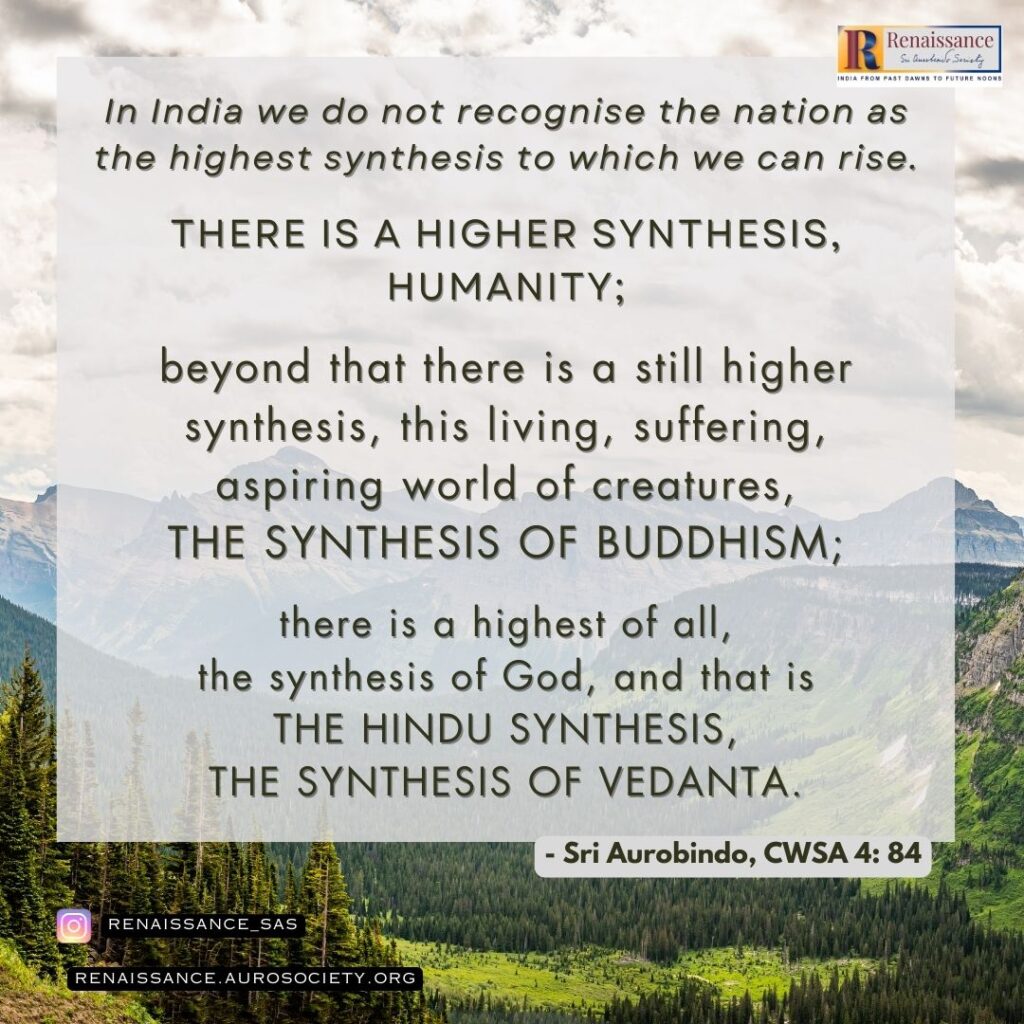
***
To reach the highest ideals of Indian thought we must do some serious work on ourselves. More to the point, if we cannot love our nation, without any expectation, can we ever love or even care for humanity? From family to clan to tribe to nation to humanity—that is the way evolutionary principle works when it comes to loving and sacrificing for a human aggregate.
As humanity we have yet to evolve to live in the ideal of One World, One Humanity. The nation is still the single-largest collective aggregate of which an individual is a part. There is something akin to a soul-element in this entity called nation. It is up to the individual to recognise that soul of the nation. And because there is a divinity in nation, there is a need to defend the nation, as aggressively as required, from the mad and violent onslaught of the asuric forces trying to break the integrity and unity of a nation.
READ PART 1

~ Design: Satya, Beloo & Ramajayam

